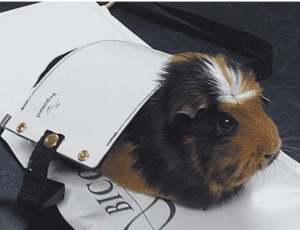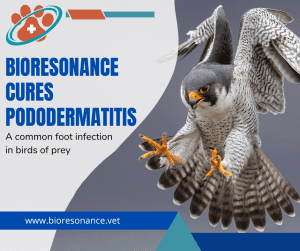Long‐haired shepherds Franze and Fanny with itching and diarrhoea
A patient report from the animal keepers Margarete and Peter Our two long‐haired shepherd dogs, [...]
Mar
Dachshund Rambo with food intolerance
A patient report from animal owner Patricia My Rambo is my little sunshine. He makes me [...]
Mar
Bioresonance Therapy And Pet Allergies
Pets are adored by millions of people. Approximately 36.5% of American households own at least [...]
Mar
Treatment options for headshaking syndrome
Client Name: Karina Diehl, holistic animal healer The horse could no longer be ridden as he [...]
Dec
A vet takes up the story:
Client Name: Dr. med. vet. Denzinger “Actually I used the BICOM® device from necessity” The case [...]
Dec
Little Schnuffi
Client Name: Dr. med. vet. Andrea Karbe-Hachmann “Schnuffi“, a smooth-haired guinea pig, was treated with [...]
Dec
BICOM® bioresonance therapy: Offering help when all else has failed?
Client Name: Dr. med. vet. Astrid Harte, Vet and non-medical practitioner Initial skepticism overturned by [...]
Dec
BICOM® Therapy for falcon with bumblefoot
Client Name: Evelyn Brey Dubai Falcon breeder impressed I have been living in Dubai for [...]
Dec
Search Testimonials
It is important to remember that individual anecdotes and testimonials should not be used as the sole basis for making decisions about medical treatments or therapies.
When it comes to alternative therapies like bioresonance, it is essential to rely on evidence-based research and the advice of trained medical professionals. While some people may have positive experiences with bioresonance for their animals, it is important to approach these claims with caution and seek out reliable information from reputable sources.
Ultimately, the decision to pursue bioresonance or any other alternative therapy for your animal should be made in consultation with a veterinarian or animal health professional who can help you weigh the potential benefits and risks.
Pollen – a nuisance for our animal companions too
Hay fever patients are only too familiar with the problem. Year after year the misery begins in the spring with stinging eyes, runny itchy nose and, in severe cases, with a cough and asthma as well. What is perhaps less well known is that our animals too suffer increasingly from this same medical condition.
Just as with humans, the incidence of allergies is also becoming more frequent in animals. Allergic reactions may be provoked by airborne allergens such as pollen, house dust and house dust mites, amongst other factors. Food intolerance is also on the increase, however, and represents a distressing problem for the affected animals.
Now, in spring, as it gets warmer, allergic animals are all suffering as well. With animals it is mainly their skin which itches or else their
noses run more and they occasionally sneeze. Changes in their coats and reddening of the skin are often noticed in the face, feet and ears. These areas often display bloody claw marks and develop into very painful weeping eczema, indicating the severity of the irritation.
This type of problem in animals can be treated with the allergy programs pre-loaded in the Bicom device.
Dr. med. vet. C. May







